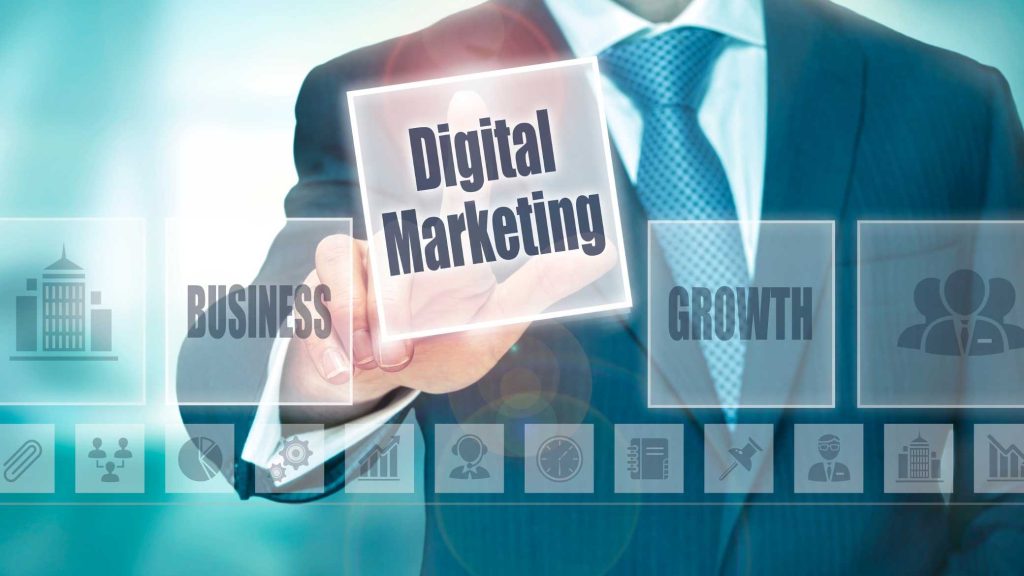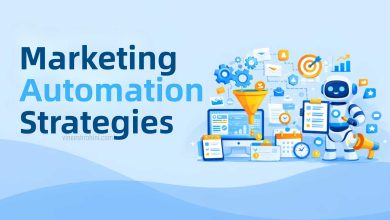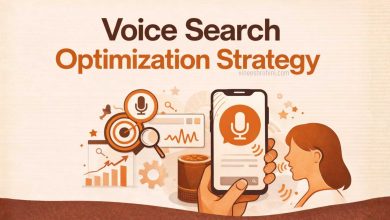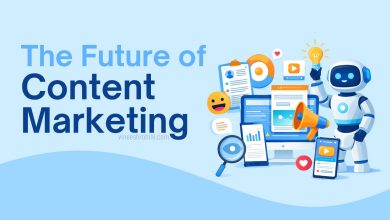What is Digital Marketing Strategy ? : Comprehensive Guide 2024
Digital Marketing Strategy : In the age of digital transformation, businesses must adapt to rapidly changing consumer behaviors and technological advancements. Digital marketing strategy has become a cornerstone for organizations looking to thrive in this competitive landscape. But what exactly is a digital marketing strategy, and why is it so essential for modern businesses?
Table of Contents
This comprehensive essay delves into the concept of digital marketing strategy, its components, benefits, and how businesses can create and implement an effective plan to achieve their goals.
Understanding Digital Marketing Strategy

A digital marketing strategy is a comprehensive plan that outlines how a business will leverage various digital channels to achieve its marketing objectives. It encompasses everything from social media and search engine optimization (SEO) to email marketing and paid advertisements.
Also Read : Digital Marketing Tips for SMEs in 2025
Unlike traditional marketing, digital marketing relies heavily on data analytics, customer insights, and real-time engagement to deliver targeted and measurable results.
At its core, a digital marketing strategy answers three fundamental questions:
- What are the business’s goals?
- Who is the target audience?
- What tactics and tools will be used to reach the audience and achieve the goals?
Key Components of a Digital Marketing Strategy
A robust digital marketing strategy is composed of several interconnected elements that work together to achieve desired outcomes. Here are the primary components:
1. Goals and Objectives
The first step in creating a digital marketing strategy is to establish clear and measurable goals. These goals should align with the overall business objectives and follow the SMART criteria:
- Specific: Clearly defined and focused.
- Measurable: Quantifiable to track progress.
- Achievable: Realistic and attainable.
- Relevant: Aligned with broader business goals.
- Time-bound: Set within a specific timeframe.
Common goals include increasing website traffic, generating leads, boosting brand awareness, and improving customer retention.
2. Target Audience
Understanding the target audience is crucial for crafting effective marketing messages. This involves creating buyer personas that represent the ideal customers. Key factors to consider include:
- Demographics: Age, gender, income, education, etc.
- Psychographics: Interests, values, lifestyle, and pain points.
- Behavioral Data: Online activity, purchasing habits, and preferences.
By knowing who the audience is and what they want, businesses can tailor their strategies to meet customer needs effectively.
3. Digital Channels
A digital marketing strategy leverages various online platforms to reach the target audience. These include:
- Search Engines: SEO and pay-per-click (PPC) campaigns.
- Social Media: Platforms like Facebook, Instagram, LinkedIn, and Twitter.
- Email Marketing: Personalized email campaigns for lead nurturing.
- Content Marketing: Blogs, videos, infographics, and ebooks.
- Website Optimization: User-friendly and mobile-responsive websites.
4. Content Strategy
Content is the backbone of digital marketing. A content strategy involves creating, distributing, and managing high-quality content that resonates with the audience. Key aspects include:
- Defining content themes and topics.
- Establishing a content calendar.
- Optimizing content for SEO.
- Ensuring consistency in tone and messaging.
5. Budget and Resources
Allocating resources effectively is essential for the success of a digital marketing strategy. This includes setting a budget for paid ads, hiring skilled professionals, and investing in tools and software for automation and analytics.
6. Metrics and Analytics
Measuring performance is a critical part of any digital marketing strategy. Businesses must identify key performance indicators (KPIs) to track success. Common KPIs include:
- Website traffic.
- Conversion rates.
- Social media engagement.
- Return on investment (ROI).
Using analytics tools like Google Analytics, businesses can gain valuable insights into campaign performance and make data-driven decisions.
Why is a Digital Marketing Strategy Important?

A well-defined digital marketing strategy offers several benefits, including:
1. Better Alignment with Business Goals
A digital marketing strategy ensures that all marketing efforts are aligned with the broader business objectives. This alignment helps businesses stay focused and allocate resources efficiently.
2. Enhanced Customer Engagement
Digital marketing enables businesses to interact with their audience in real-time through social media, live chats, and personalized emails. This engagement fosters stronger relationships and boosts customer loyalty.
3. Improved Targeting
With tools like SEO and PPC, businesses can reach highly specific audience segments. This level of targeting reduces wasteful spending and improves the effectiveness of marketing campaigns.
4. Measurable Results
Unlike traditional marketing, digital marketing provides detailed metrics that allow businesses to track performance and ROI. This data-driven approach enables continuous improvement.
5. Competitive Advantage
A robust digital marketing strategy helps businesses stand out in a crowded marketplace. By leveraging innovative tactics and staying ahead of trends, companies can gain a competitive edge.
Steps to Create an Effective Digital Marketing Strategy
Crafting a successful digital marketing strategy requires careful planning and execution. Here’s a step-by-step guide:
1. Define Goals
Start by identifying what you want to achieve. For example, if the goal is to increase website traffic, specify the target percentage or number of visitors within a set timeframe.
2. Conduct a SWOT Analysis
Evaluate the business’s strengths, weaknesses, opportunities, and threats. This analysis provides valuable insights that inform strategic decisions.
3. Understand the Audience
Conduct market research to understand customer needs and preferences. Use surveys, social media insights, and analytics tools to gather data.

4. Choose the Right Channels
Select digital channels based on the target audience and marketing goals. For instance, B2B companies might focus on LinkedIn, while B2C businesses may prioritize Instagram and Facebook.
5. Develop a Content Plan
Create a detailed content plan that outlines the type of content, distribution platforms, and publishing schedule. Ensure that the content aligns with the brand’s voice and values.
6. Allocate Budget
Determine how much to spend on each component of the strategy, from paid ads to content creation. Be sure to leave room for unexpected expenses.
7. Implement and Monitor
Launch the campaigns and closely monitor their performance. Use analytics tools to track KPIs and identify areas for improvement.
8. Optimize and Iterate
Based on the performance data, refine the strategy to enhance results. Digital marketing is dynamic, and continuous optimization is essential for long-term success.
Trends in Digital Marketing Strategy
The digital marketing landscape is constantly evolving. Staying ahead of trends is crucial for maintaining relevance and effectiveness. Here are some current trends:
1. Artificial Intelligence (AI)
AI is revolutionizing digital marketing by enabling personalization at scale. From chatbots to predictive analytics, AI-powered tools are enhancing customer experiences and driving better results.
2. Video Marketing
Video content continues to dominate online platforms. Short-form videos on TikTok, Instagram Reels, and YouTube Shorts are particularly popular for engaging younger audiences.
3. Voice Search Optimization
With the rise of smart speakers and voice assistants, optimizing content for voice search is becoming increasingly important.
4. Influencer Marketing
Collaborating with influencers helps businesses reach new audiences and build credibility. Micro-influencers, in particular, are gaining traction for their authentic connections with niche communities.
5. Sustainability and Social Responsibility
Consumers are increasingly prioritizing brands that demonstrate ethical practices and sustainability. Incorporating these values into digital marketing strategies can enhance brand loyalty.
Challenges in Digital Marketing Strategy
While digital marketing offers numerous benefits, it also comes with challenges. Common obstacles include:
1. Rapid Technological Changes
Keeping up with the latest tools and trends can be overwhelming. Businesses must stay agile and invest in continuous learning.
2. Data Privacy Concerns
Stricter regulations like GDPR and CCPA require businesses to handle customer data responsibly. Ensuring compliance is critical to maintaining trust.
3. Measuring ROI
Determining the exact ROI of digital marketing efforts can be complex, especially for multi-channel campaigns.
4. Intense Competition
The digital space is crowded, making it challenging for businesses to stand out and capture attention.
Digital Marketing Strategy – Conclusion :
A digital marketing strategy is an essential blueprint for businesses looking to succeed in today’s online-driven world.
Buy Now : Internet Marketing Mastery Course
By defining clear goals, understanding the audience, and leveraging the right channels and tools, companies can create impactful campaigns that drive growth and engagement. While challenges exist, a well-executed strategy backed by data and innovation can help businesses navigate the complexities of the digital landscape and achieve long-term success.



